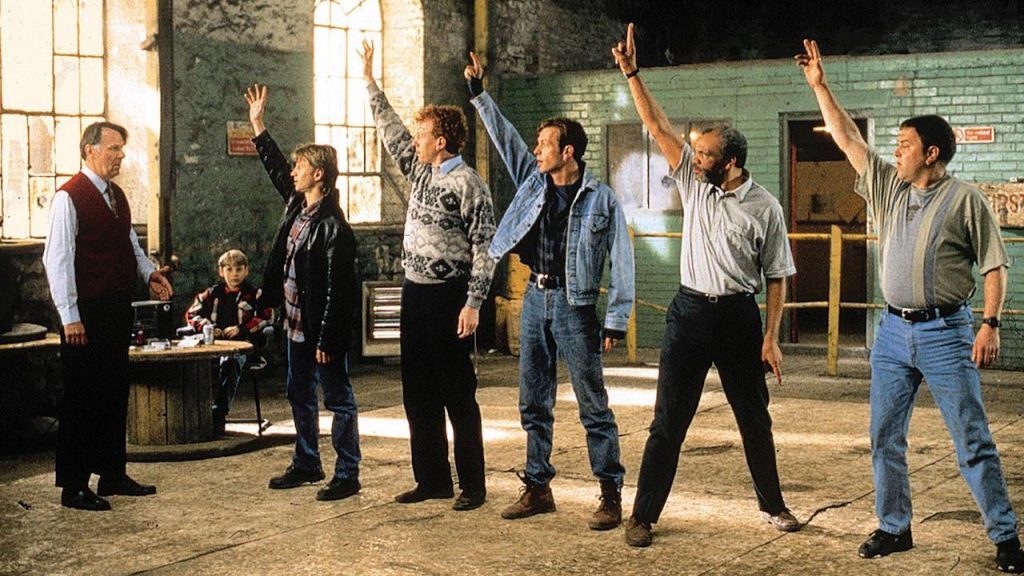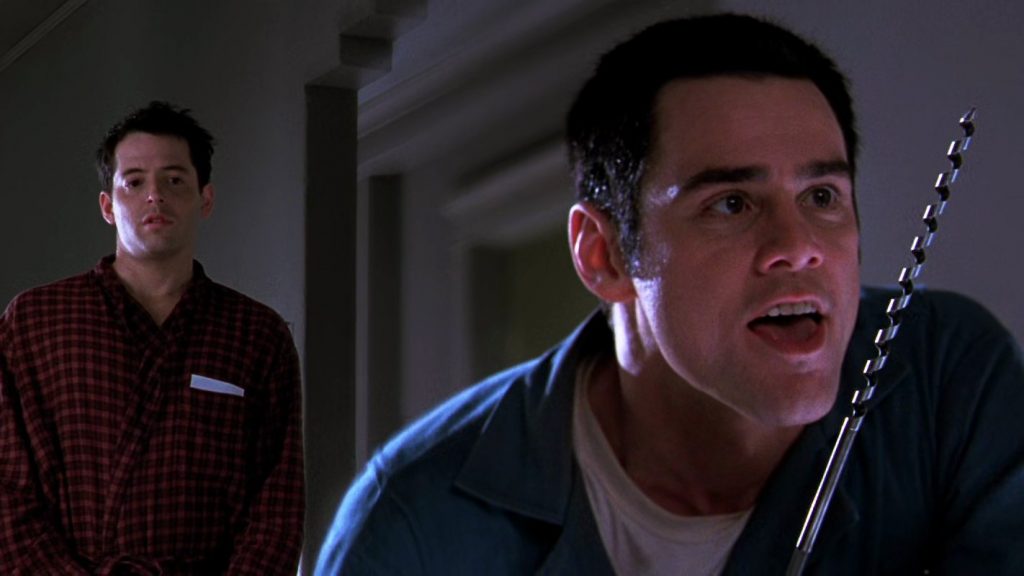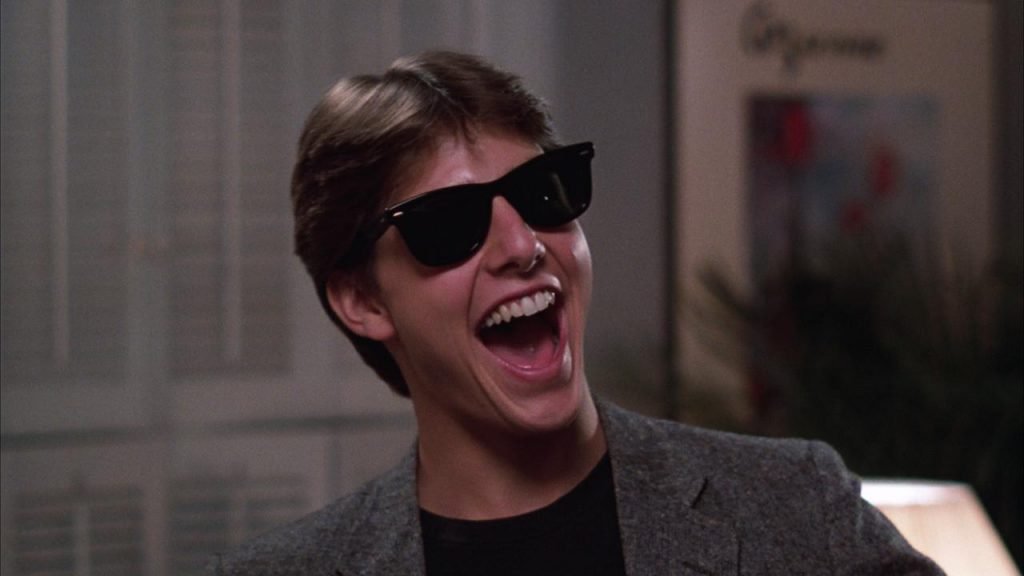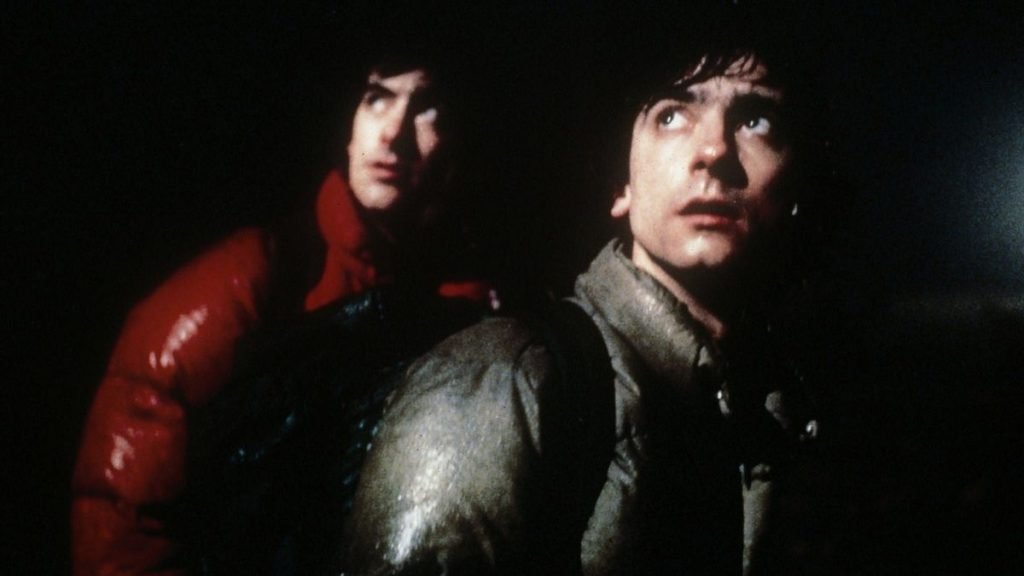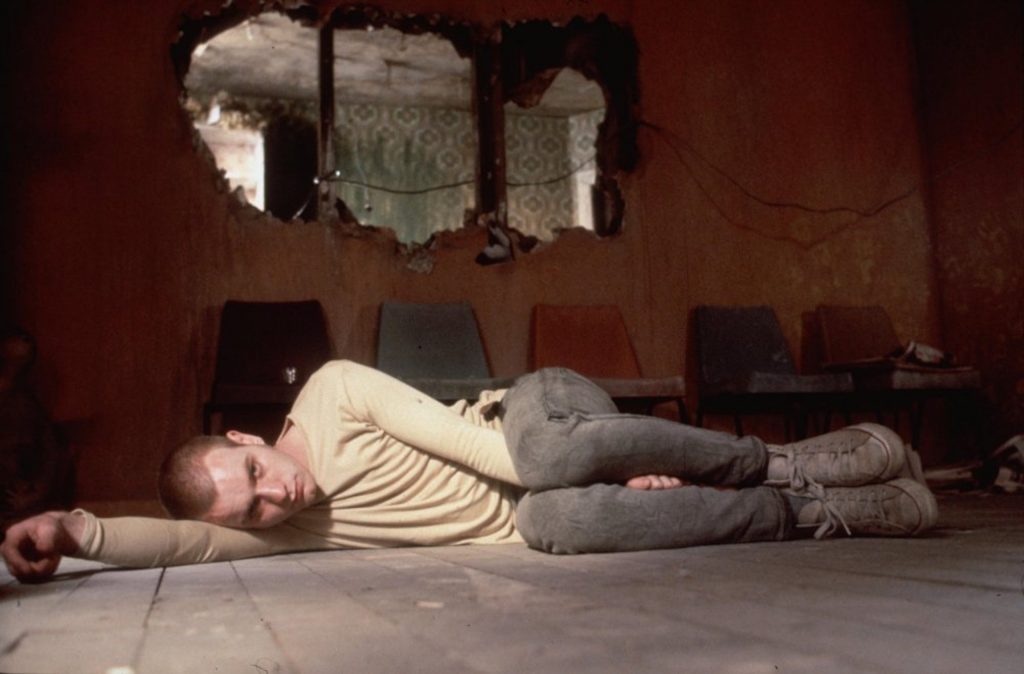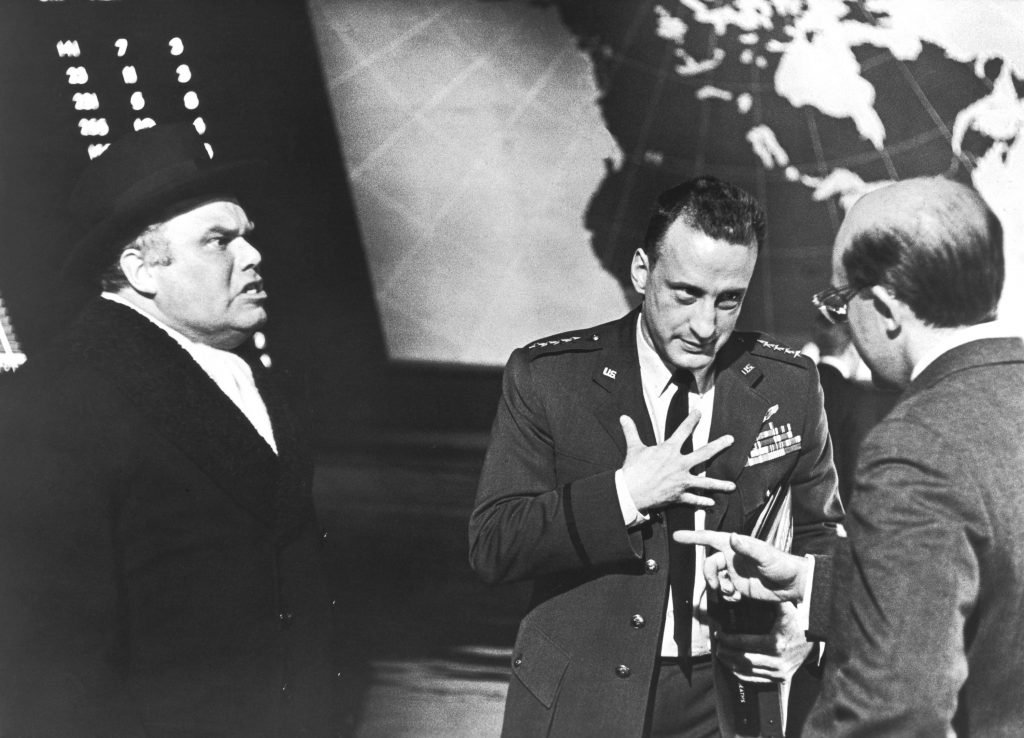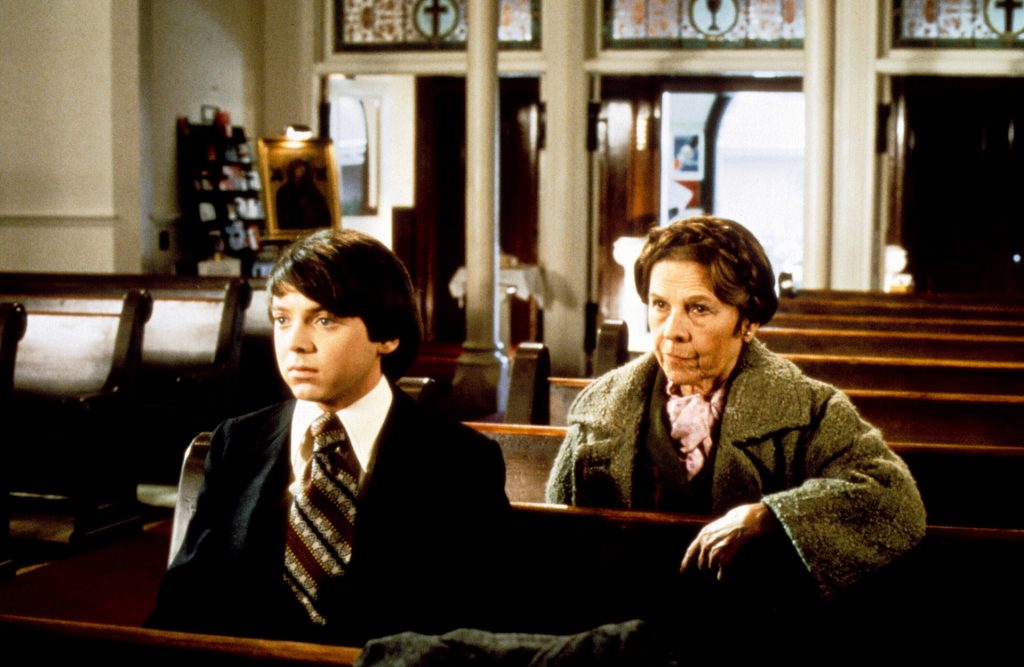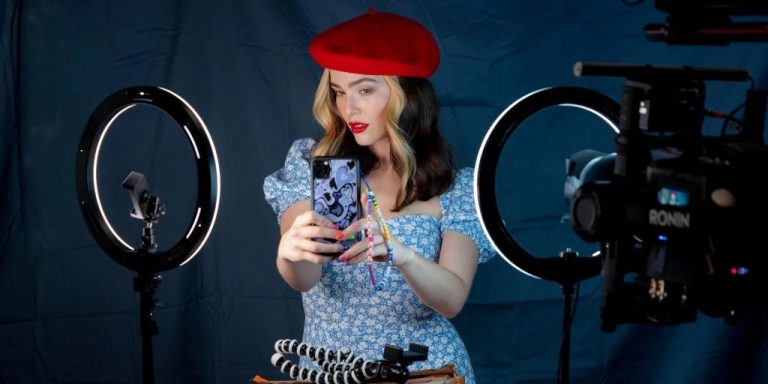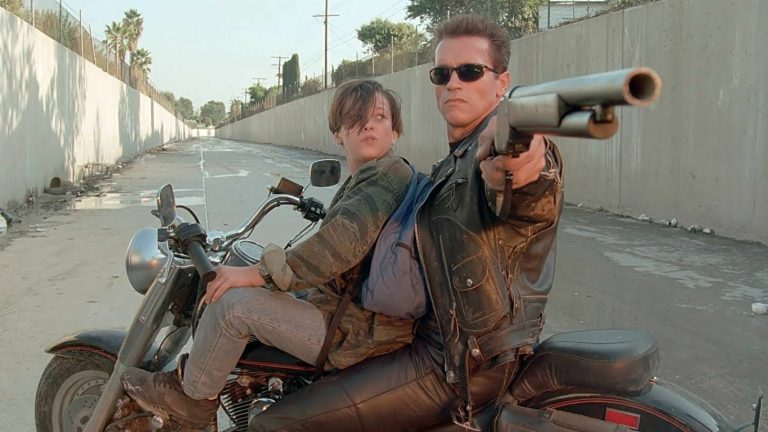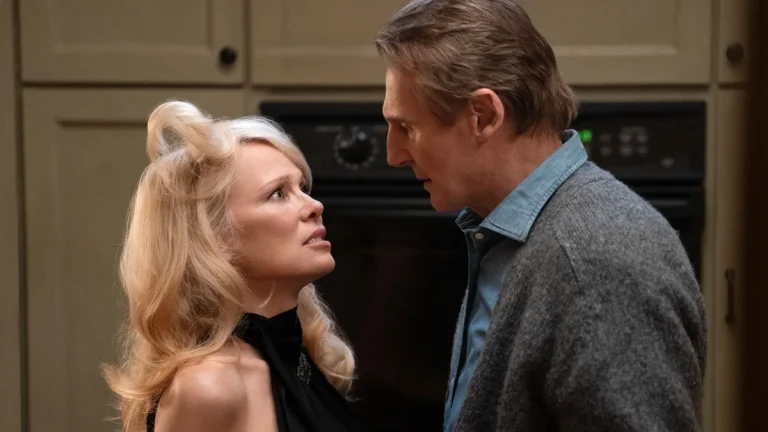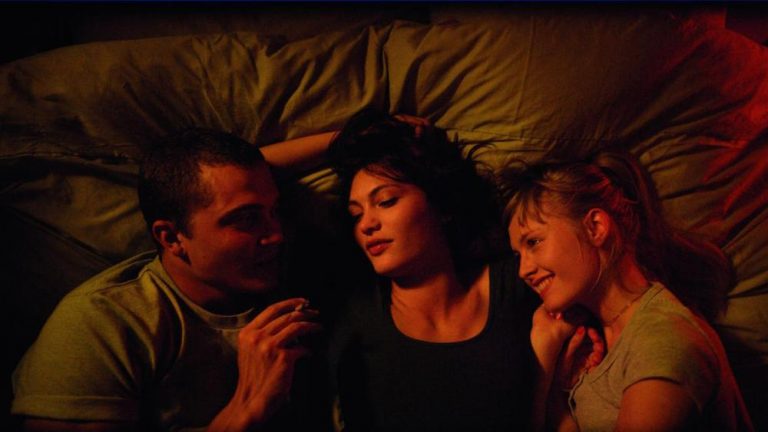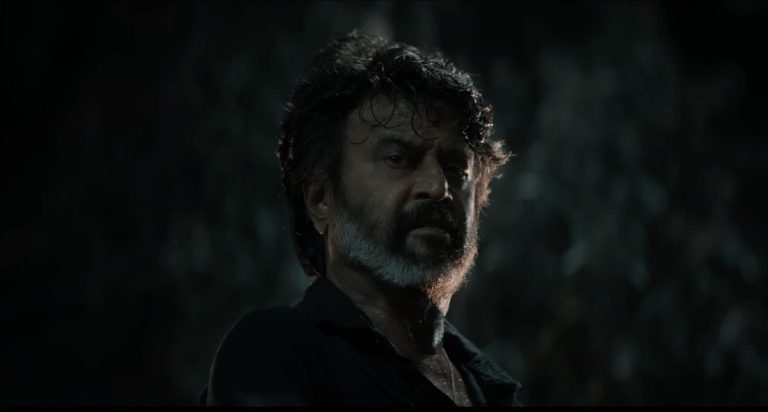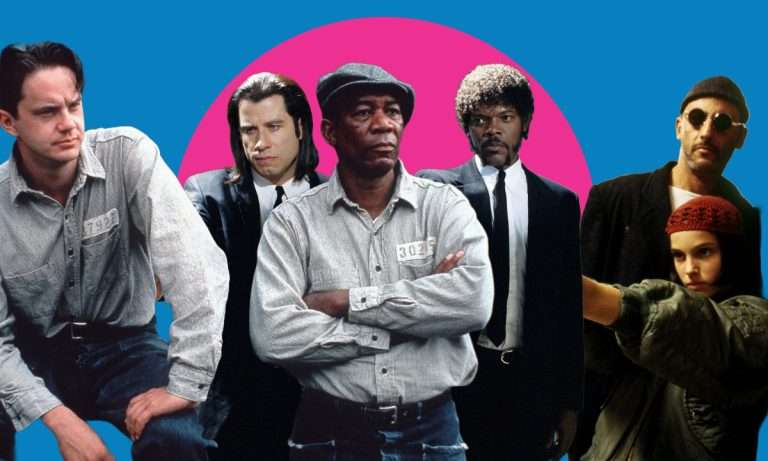10 Greatt Dark Comedy Movies From The 20th Century: The unlikely candidate to perfectly summarize comedy comes in the form of the second man to set foot on the moon; Mr. Buzz Aldrin. As he explains, comedy is when the ‘real’ mixes with the ‘absurd’. I first heard this in Sacha Baron Cohen’s ‘Ali G In Da USAiiiii’ interview with Aldrin; it’s stayed with me ever since, because I believe it encapsulates the central conflict in comedy. Whether it’s a mismatched duo or a character navigating their way through extremely dangerous and tense situations the essence of comedy tends to come from the collision of the real and the absurd.
In this article, we’re going to analyze the best examples of comedy from the sub-genre which I feel has the most insight into the human condition: Dark Comedies. Typically, people look to comedies as escapism from their woes and shortcomings, Dark Comedies take them head-on, blurring the line between laughter and sadness, showing insight into the more repressed comedy that lives within us. The examples are in no particular order and, of course, are of my subjective interpretation, so please, sit back and scrutinize my takes on the following:
1. Vampire’s Kiss (1988)
In the twilight of the New York evening, as darkness envelops the city that never sleeps, we meet Peter Loew; an amoral womanizer by night and literary agent by day. Hot-tempered, competitive, and highly aggressive, during his nocturnal perusing he encounters a woman who he sleeps with – what follows is an extended filmic delusion that Peter descends into, under the belief that the woman was actually a vampire, that she bit him…and he himself is slowly becoming one.
Related to Dark Comedy Movies: 10 Best Nicolas Cage Performances
The absurdity rendered by Nicholas Cage’s maximalist performance as Peter is so unsettling, so bizarre, that it distinguishes the film from anything else in the sub-genre. Famously spawning the ‘YOU DON’T SAY’ meme (the meme-ification of Cage does the performance a disservice) the film follows the descent into mental oblivion as Peter sadistically harasses his intern, loses his grasp on objective reality, leaps onto tables, wear plastic vampire teeth and wails into insanity. Blurring the lines between humor and horror, at times deeply uncomfortable and always teetering on becoming a full-on satire. Cage’s performance represents an iconoclastic shift from the brooding minimalism of the method approach, in favor of a highly animated breakdown that vaporizes convention.
2. The Full Monty (1997)
A national sensation at the time of release, later becoming one of the cheeky top-shelf VHS tapes that were forbidden to youngsters; The Full Monty simultaneously broke UK box office records and was the highest-grossing film in the UK (until Titanic dethroned it). A curious film that finds humor in Sheffield, England, of all places. A post-industrial city in the heart of the North that lost its sense of identity when the mighty steel industry was outsourced and consequently dismantled, leaving thousands of men without jobs.
The film follows Robert Carlyle as Gaz; an unemployed, well-meaning, ex-steelworker/broke dad who will imminently lose access to his son without rectifying his outstanding child support bills. Desperate for cash and inspired by a sold-out Chippendale stripper performance at a local working men’s club (during a women-only night) he decides it’s an easy way to make cash and recruits a band of ex-steelworkers to come up with a strip routine and get the money to keep his son in his life. What ensues is an extremely cheeky and lovable comedy that touches on the darkest themes of suicide, loneliness, body image, divorce, and unemployment, with masterstroke sensitivity, a soulful soundtrack, and a flawless cast.
3. The Cable Guy (1996)
The film that marred Jim Carrey’s winning streak following the succession of The Mask, Dumb & Dumber, and Ace Ventura, this much maligned dark comedy gave audiences a version of Jim Carrey they simply didn’t wish to see at the time. Centered around an obsessive stalker whose true name is never revealed, the Ben Stiller directed comedy tackles obsession and harassment in a 90’s fever dream of surreal social interactions and delirious moments of unflinching madness.
The titular Cable Guy is secondary to Matthew Broderick playing Steven; a man moving into a new apartment following a trial separation from his girlfriend Robin (Leslie Mann). It’s in this new property where he encounters the Cable Guy who makes it his mission to befriend Steven at all costs. The film plays out as a sort of hodgepodge of 90’s zeitgeist – from the utopian monologue around the possibilities of satellite cable (‘YOU CAN DO YOUR SHOPPING AT HOME…OR PLAY MORTAL KOMBAT WITH A FRIEND IN VIETNAM!’) to the side narrative featuring a celebrity trial of ‘The Two Stans’ (both played by Ben Stiller) which reflected the national obsession of the O.J Trial – it speaks to a culture entranced by media which produced a disaffected generation, who grew up on TV, struggling to determine what is real and how to relate to other people.
4. Death Becomes Her (1992)
Marking a segway from his tough-talking action hero typecast, we see Bruce Willis play Ernest Menville, a nervous plastic surgeon who married aspiring writer Helen (Goldie Hawn) when they both attend a Broadway play starring Helen’s ‘frenemy’’ Madelyn (Meryl Streep), Ernest becomes besotted and swiftly leaves Helen to elope with Madelyn. Devastated, consequently morbidly obese, and institutionalized, Helen plots her revenge on her ex-friend. Emerging seven years later as a ravishing and Athenian new woman, all isn’t as it seems when the two women cross paths once again, Helen looks impossibly young and youthful – Madelyn’s jealousy drives her to find out her old friend’s secret…
Essentially a Faustian tale akin to The Picture of Dorian Gray where a ‘deal with the devil’ is made, it’s a kitsch comedy that flirts with the camp, the weird, and the supernatural. Combining elements of body horror, slapstick comedy, and fairy tale, Death Becomes Her is a unique anomaly within the comedy heritage that marinates on themes of death, vanity, the passage of time, plastic surgery, and beauty standards in an era that wants to preserve women as permanently youthful. It’s a film whose commentary is still relevant, whose comedy still cuts, and whose weirdness still prevails.
5. Risky Business (1983)
Joel (Tom Cruise) is a straight-laced, all-American high school student with entrepreneurial ambitions – when his parents go away from the weekend he has their huge, suburban house all to himself…but what to do with all of this freedom? Following the terrible advice of his friend, he nervously contacts a call girl and gets more than he bargained for when she doesn’t leave. The film is peak 80’s, featuring a cherub-faced Cruise perfectly cast as the conforming but ultimately corruptible Joel. Rebecca DeMornay plays the sultry and darkly angelic call girl; Lana who is being pursued by her repugnant and aggressive ex-pimp; Guido. All accompanied by a cosmic and tender OST from electronic innovators Tangerine Dream.
The comedy in the film arises from the extremity of contrast, that this sliced-white-bread overachiever finds himself profiteering from the illegitimate economy of prostitution in his parent’s house. The narrative of Lana’s entrance runs alongside Joel’s final weeks in high school and his classes in business enterprise, linking all three events into a sort of strange neoliberal coming-of-age lesson. Joel learns firsthand the cut-throat nature of capitalism, which informs his approach to enterprise, all whilst crossing the threshold into the uncertain markets of adulthood and responsibility.
6. An American Werewolf In London (1981)
John Landis’ masterpiece follows two young backpackers across the moors of Northern England, they are accosted by a werewolf, and one of them is torn to shreds. Awaking in a London hospital, the survivor and our protagonist; David, finds himself haunted by the rotting ghost of his dead friend as he learns he will become a werewolf at the next full moon. The film is significant for its effective binding of horror and comedy, its pitch-black approach to the real meeting the absurd, and its graphic scenes of body horror.
Moments of comedy are offset by sudden moments of somber darkness and shocking bewilderment (with one dream sequence giving a nod to Naziploitation films) this strangely provides a sort of ‘shock phase’ that lines up the comedic relief. The interplay of this tension is done practically through its use of sound, editing, and most significantly its special effects overseen by Rick Baker (famously, Micheal Jackson saw the movie and immediately wanted to get Baker on board for the Thriller video) so that the film binds into an extremely nihilistic supernatural drama with moments of searing humor, a picture that Edgar Wright referred to as “the film that changed my life.
7. Trainspotting (1996)
This zeitgeist-encompassing film stands in a league of its own as a highly kinetic, extremely dark, and subversive Scottish nightmare – adapted from Irvine Welsh’s novel, it introduces us to Mark Renton (Ewan McGregor), a 26-year-old unemployed heroin addict whose philosophy around consumerism informs his anti-society brand of anarchic nihilism. With his wider band of fellow addicts, they sway through the days of robberies and toilet diving in Edinburgh in this genre-bending malaise of misery and laughter.
Related to Dark Comedy Movies: Choose Trainspotting (1996)
The film resonated in a way peculiar to the 90s as a counter-cultural grunge picture, with off-shoots such as the fashion movement ‘heroin chic’ finding inspiration in the disavowal and unkempt style of the film. It was the type of morally subversive film that, despite its shocking content, made heroin seem impossibly ‘cool’ as though this life of negative existence and addiction was in and of itself a protest against the commercial excesses of mid-90s neoliberal hegemony. At times cripplingly funny and at others genuinely traumatic, it was the film that skyrocketed director Danny Boyle’s reputation internationally as a disruptor, a director unafraid to tackle black comedy with a canine bearing, sardonic smile.
8. Dr. Strangelove (1964)
During the height of the Cold War, when the threat of nuclear oblivion hung heavy in the air; Dr. Strangelove was released in cinemas, lambasting the ineptitude of a culture that has harnessed the ability to destroy itself. The film follows the events immediately after the mental breakdown of U.S Air Base Commander; General Ripper (Sterling Hayden) as he orders (without approval) a preemptive nuclear strike on the U.S.S.R. that cannot be reversed. This is justified by Ripper’s paranoid delusion that Russian Communists are out to get his ‘precious bodily fluids.’
Related to Dark Comedy Movies: All Stanley Kubrick Movies Ranked
The film is a risible series of expertly placed jabs that interprets the paranoia of the 1960’s American nuclear policy as a symptom of something more primal; a fear of being attacked that justifies attacking first. Completely deadpan in its delivery, we see the real-time collapse of logic from the incompetence of an administration that has unwittingly invoked the end of days. Peter Sellers masterfully navigates three separate roles whilst Kubrick’s direction frames the tragedy in a monochrome sheen. The pitch-black darkness of the humor and subject matter allows for the prospect of a nuclear holocaust to become laughable…liberating in all its cowboy-riding-a-nuclear-warhead absurdity, the film is arguably the definitive dark comedy picture of the 20th century.
9. Harold & Maude (1971)
The most macabre yet wholesome love story ever told; Harold is a nihilistic 19-year-old boy completely obsessed with death. Hailing from a wealthy family who is determined to see him married, he spends his days pranking his mother and servants by ‘committing suicide’ in various ways. When he isn’t faking his own death, he attends funerals of people he doesn’t know. It’s here he encounters 79-year-old Maude; a carjacking, piano-playing elderly lady with an unstoppable lust for life (who also crashes funerals). The juxtaposition of Harold & Maude’s relationship with life (and death) is the core of the narrative.
Harold is a young man, yet he longs for death – he fixates on the rituals, violence, pain, and shock of death as an event. Oppositely, Maude is approaching death but deals with this same specter in a jocular and flippant way – disregarding social norms, violating the law, speaking freely, and living according to herself. It’s in Maude’s approach to life that Harold finds value and perspective in his own experience. A truly gothic love story that presents the most morbid packaging of optimism you’ll perhaps ever see. The beautiful soundtrack, wonderful direction, and endearing performances make Harold & Maude a memorably bizarre classic.
10. Brazil (1985)
Set in an alternative version of the 20th century, in a dense, dark, and nameless metropolis retrofitted with anachronistic devices, Terry Gilliam’s ‘Brazil’ is an unforgettably grandiose and utterly absurd epic. The film delivers us into a surreal version of a society that could have been dreamt up by 1930’s futurists – but this society has been left to age, rust, and erode indefinitely. The film sways between the dreams of protagonist Sam Lowry (Jonathan Pryce) as he imagines himself as an angel flying to save the woman of his dreams, to his reality as an office clerk in this festering mega-city that’s under constant threat of terrorism.
It’s part Orwellian vision of a totalitarian society, part Kafkaesque bureaucratic nightmare, and part Fritz Lang’s ‘Metropolis’. The nameless city itself is a sprawling aesthetic blend of Art Deco, Modernism, and Brutalism – a steaming maze that seemingly springs out of nightmares. The film is a sharply hilarious attack on the absurdity of corporate oligarchies, the irrationality of overly designed bureaucracy, the snobbery of high society, the ills of overproduction, the threat of repressive politics, the shock of domestic terrorism, and the atomization of society. With a hugely understated supporting cast including Bob Hoskins and Robert De Niro (who plays a zip-lining, pistol-wielding handyman) the film tackles dark sociopolitical themes with a stylistic and humorous vigor, creating a masterpiece of not only dark comedy but of cinema itself.
High on Films now has a YouTube Channel as well, where you can find more exciting content like this. Check it out.


